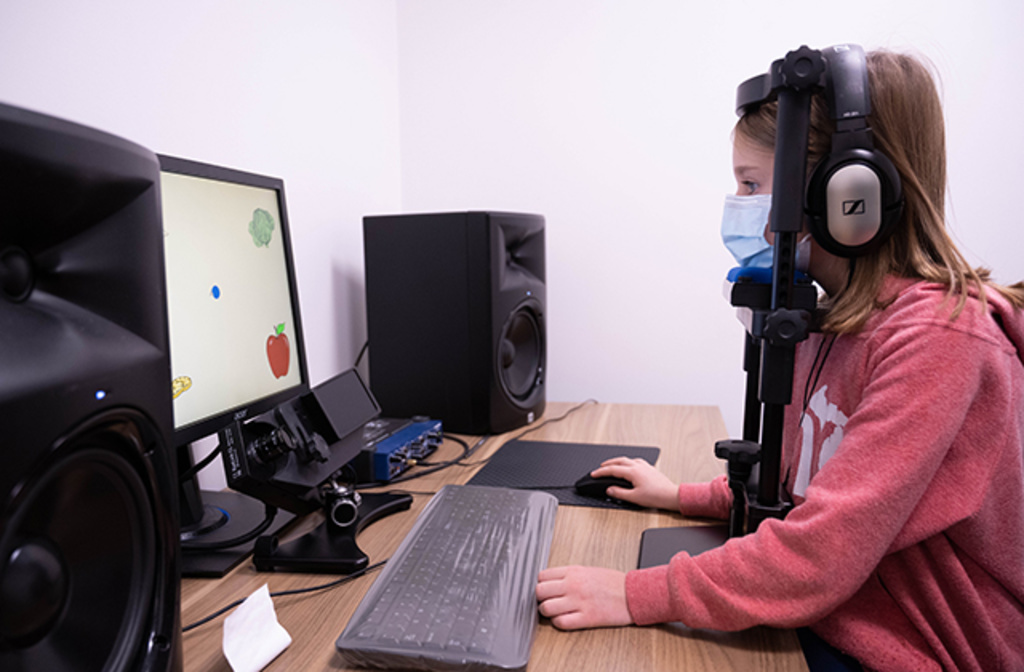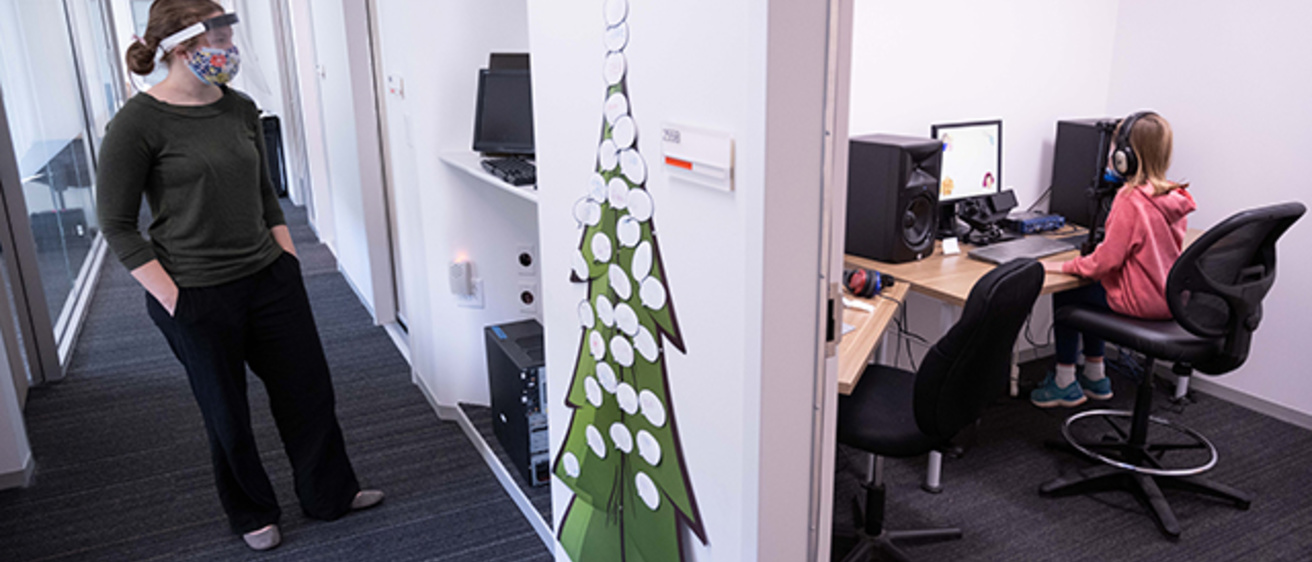Bob McMurray had just begun the Growing Words Project—a multimillion-dollar initiative to test several hundred elementary-age children on their ability to recognize words, build a vocabulary, and develop crucial reading skills—when the coronavirus pandemic struck.
McMurray, professor in the Department of Psychological and Brain Sciences at the University of Iowa, had recently opened a new research lab in Cedar Rapids, Iowa, where the schoolchildren would be tested. The lab had just begun operations when the pandemic forced a halt to any visits.
The research team had to adapt fast. They reconfigured and began testing children through online reading and language games and over the Zoom platform. This past summer, more than 150 children in first to fifth grades in the Cedar Rapids, College Community, and Iowa City school districts took part. The new approach not only yielded critical data about how children become faster readers but also taught the team how to do research in a new way.
Beginning this fall, the group is restarting the original project using what it learned last summer. The researchers are reaching out to the same school districts to add more elementary-age children in the Growing Words Project.

“Our summer approach was really cool because it taught us that we can do a lot of the assessments online,” McMurray says. “Now that we’re restarting, we can do much of our research with children over the internet. It minimizes in-person contact, so we hope that’s safer for the children and their families, in that we don’t have to spend as much time with them and they don’t have to spend as much time with us.”
The Growing Words Project is important because it could help researchers better understand how children with language disorders or dyslexia identify spoken and written words. A better understanding could lead to an ability to help struggling children earlier and give them the word-learning assistance they need. The researchers originally obtained $2.1 million in funding from the National Institutes of Health for the research.
“We think our research gives us a pretty unique insight into not only how well a child is doing but also why they may be doing poorly or what’s changing with language development,” McMurray says. “The goal is to try to figure out all the whys with how children recognize and learn words, something we just don’t know currently.”

This spring the researchers will do even more, thanks to winning an additional $1.6 million in funding from the National Institutes of Health. The funds will allow researchers to scan the brains of a subset of the children in the Growing Words Project.
“What makes you become better at word recognition? Is it because of differences in language areas of the brain? Or are children bringing in higher-level decision-making areas?” McMurray explains. “We are going to measure the size and structure of these areas and how well connected these areas are to each other. By linking this to children’s reading and language skills, and to our eye-tracking task, we hope to fill in a missing piece of the puzzle.”
The Growing Words team aims to scan about 100 children’s brains, at intervals two years apart. Through this exciting addition to the project, the research team hopes to learn which brain areas are changing as children grow older and become more experienced, and how those changes may be connected with word recognition and reading.
“Part of the big goal here is to capture that change and then see what it tells us for how well the kids are doing later,” McMurray says.
